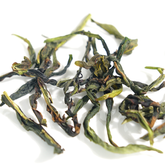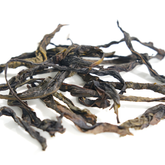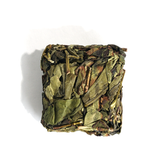Introduction to Black Tea: How to Choose Quality Black Tea and Brew It Correctly
Black tea is one of the most popular types of tea worldwide, cherished for its rich flavor and unique aroma. It's especially beloved in the UK, whether enjoyed with milk at breakfast or sipped plain during afternoon tea. However, to truly unlock the flavor of black tea, mastering the right brewing method is crucial. Read on to learn how to brew a better-tasting black tea.
Basic Introduction to Black Tea
Black tea is a fully fermented tea, making it more robust and aromatic compared to green or white teas. There are several well-known types of black tea, including Keemun from China, Lapsang Souchong from Fujian, and Yunnan black tea. Black tea not only tastes great but also aids digestion, boosts immunity, and supports cardiovascular health. Although black tea has a higher caffeine content than other teas, it generally has less caffeine per cup than coffee and provides a calming effect rather than a stimulating one. This makes black tea a suitable choice for those looking to reduce their caffeine intake.
How to Brew a Better-Tasting Black Tea
Choose Quality Black Tea
To brew a great cup of tea, start with high-quality ingredients. Black tea is harvested in four seasons: spring, summer, autumn, and winter. Generally, spring-harvested tea leaves are the best and most expensive, while summer leaves often have a more bitter taste and are cheaper. If your tea tastes bitter despite adjustments in brewing, it's likely due to poor-quality leaves rather than your brewing method.(NPTEA's Selection of Chinese Black Teas)

Select Better Water
The minerals in water can significantly affect the taste of tea. Hard water, which contains high levels of calcium and magnesium, can make tea taste bitter, especially for teas like black and green tea that have high flavor requirements. Soft water, with fewer minerals, better releases the tea’s flavors, making it taste smoother and fresher. Ideal tea water has a moderate mineral content, such as filtered water or mineral water. Avoid using repeatedly boiled water, as it has lower oxygen levels and can hinder flavor and aroma. Unfiltered water containing chlorine and other impurities can negatively impact the tea's taste and lead to undesirable bitterness.
Use the Right Tea sets
The ideal tea utensil for brewing black tea is a gaiwan (Chinese lidded bowl). Tea enthusiasts in China consider the gaiwan the perfect tool for any tea type due to its ability to control steeping time easily and avoid bitterness. Clay teapots (yixing) can over-steep tea and absorb flavors, while regular glass cups may not fully capture the tea's aroma. Gaiwan usage requires some practice to avoid burns.

Control the Brewing Temperature
The optimal brewing temperature for black tea is 85°C - 90°C (185°F - 194°F). As a fully fermented tea, black tea releases its flavors quickly in hot water. Using water that's too hot can destroy beneficial compounds like polyphenols and amino acids, making the tea bitter. Overheating can also cause some black teas to develop a sour taste, compromising their aromatic qualities.
Measure the Tea Leaves
Start with a small amount of tea leaves and adjust as needed. Typically, use 2-3 grams of black tea per 200 milliliters of water. If you prefer stronger tea, add more leaves; for a lighter taste, use fewer leaves.
Steep Time
Brew black tea quickly to avoid bitterness. Black tea’s flavor compounds are released rapidly, and prolonged steeping can make the tea bitter. Most black teas should be brewed for a short period; if steeped too briefly, the tea may lack strength, while excessive steeping can lead to bitterness.
Summary
Brewing a perfect cup of black tea is not difficult. Start with high-quality ingredients, avoid over-heating the water, and don't steep the tea too long. Spring-harvested tea yields the best results, and proper brewing techniques can help you avoid bitterness.
FAQs
1.Can black tea be brewed multiple times?
Most black teas can be brewed 2-3 times, but each steep should be longer to maintain flavor.
2.What tea utensils are best for black tea?
Glass or ceramic teapots are ideal. Glass teapots allow you to watch the tea leaves unfold, while ceramic teapots retain heat well.
3.How should black tea be stored?
Store black tea in a sealed container, away from light and moisture, at room temperature. This prevents the tea from becoming damp and preserves its freshness and aroma.
4.Does black tea contain caffeine?
Yes, black tea contains caffeine, though less per cup than coffee. Opt for whole-leaf, hand-picked teas rather than broken leaves for the best quality.
5.Does black tea have calories?
Pure, hand-crafted black tea has negligible calories. However, adding sugar or other ingredients will increase calorie content. NPTEA recommends enjoying natural, handcrafted black tea for the best experience.
SEE MORE
If you have questions about selecting tea:
Learn-more-about-chinese-tea
If you have questions about the benefits of tea:
Health-benefits-of-chinese-tea
If you have questions about brewing tea:
How-to-brew-loose-leaf-tea








